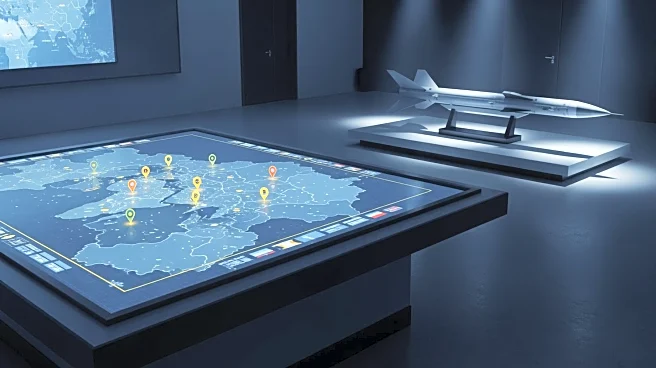Rapid Read • 8 min read
A video on TikTok, falsely claiming to show the night sky on Mars as filmed by NASA's Curiosity Rover, has garnered significant attention, amassing over 21.2 million views and 2.6 million likes. The video, posted by an account named 'nasa.curiosity', features a fake sky filled with stars, planets, and galaxies, which many viewers mistakenly believed to be real. Despite the account's disclaimer of not being associated with any agency, the video has been reported by some news websites without clarification of its inauthenticity. The Curiosity Rover, which frequently captures real images of Mars, has not produced such footage. The spread of this misinformation highlights the challenges of content verification on social media platforms, particularly TikTok.
AD
The viral spread of the fake Mars video underscores the broader issue of misinformation on social media, particularly on platforms like TikTok, which is known for its rapid content dissemination. This incident illustrates the ease with which false information can be accepted as truth, potentially misleading millions. The situation also raises concerns about the responsibility of social media platforms in moderating content and the role of news outlets in verifying information before publication. The prevalence of such misinformation can erode public trust in legitimate scientific endeavors and institutions like NASA, which rely on accurate public perception to support their missions.
As misinformation continues to proliferate on platforms like TikTok, there may be increased pressure on social media companies to implement stricter content moderation policies. This could involve enhanced verification processes for accounts claiming to represent official entities and more robust fact-checking mechanisms. Additionally, news organizations might face calls to improve their vetting procedures to prevent the spread of unverified information. The incident could also prompt educational campaigns to improve digital literacy among users, helping them discern credible sources from misleading content.
The incident highlights the cultural impact of social media on public understanding of science and technology. It raises ethical questions about the responsibility of content creators and platforms in preventing the spread of false information. The situation also reflects the ongoing tension between the rapid dissemination of information and the need for accuracy, a challenge that is increasingly relevant in the digital age.
AD
More Stories You Might Enjoy










